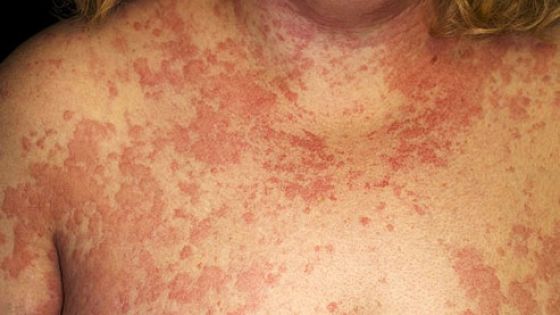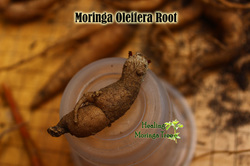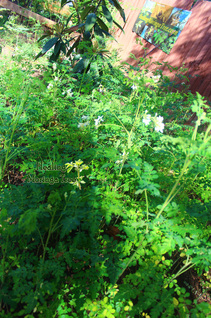Hives (urticaria) is an allergic reaction in the skin
characterized by white or pink welts or large bumps surrounded with
redness. These lesions are known as wheal and flare lesions and are
caused primarily by the release of histamine (an allergic mediator) in
the skin. About fifty percent of patients with hives develop
angioedema...a deeper, more serious form involving the tissue below the
surface of the skin.

Hives (urticaria) is an allergic reaction in the skin
characterized by white or pink welts or large bumps surrounded with
redness. These lesions are known as wheal and flare lesions and are
caused primarily by the release of histamine (an allergic mediator) in
the skin. About fifty percent of patients with hives develop
angioedema...a deeper, more serious form involving the tissue below the
surface of the skin.

Hives and angioedema are relatively common
conditions: it is estimated that fifteen to twenty percent of the
general population has had hives at some time. Although persons in any
age group may experience acute or chronic hives and/or angioedema, young
adults (post-adolescence through the third decade of life) are most
often affected. The basic cause of hives involves the release of
inflammatory mediators from mast cells or basophils...white blood
vessels, particularly in the skin, while basophils circulate in the
blood. The classic allergic reaction occurs as a result of complexes of
allergic antibodies (IgE) and antigens (foreign molecules) binding to
mast cells and basophils and stimulating the release of histamine and
other factors appear to be more important in stimulating the release of
histamine in hives.
One of the top three will combat if not prevent
allergic reactions from occuring depending on the person. Hives can be
produced as a result of reactions to various physical conditions. The
most common forms of physical urticaria are dermographic, cholinergic,
and cold urticaria. These are briefly described below. Less common
types of physical urticaria or angioedema are: contact, solar, pressure,
heat contact, aquagenic, vibratory, and exercise-induced.http://www.healingmoringatree.com/
Click Here For More Articles




No comments:
Post a Comment